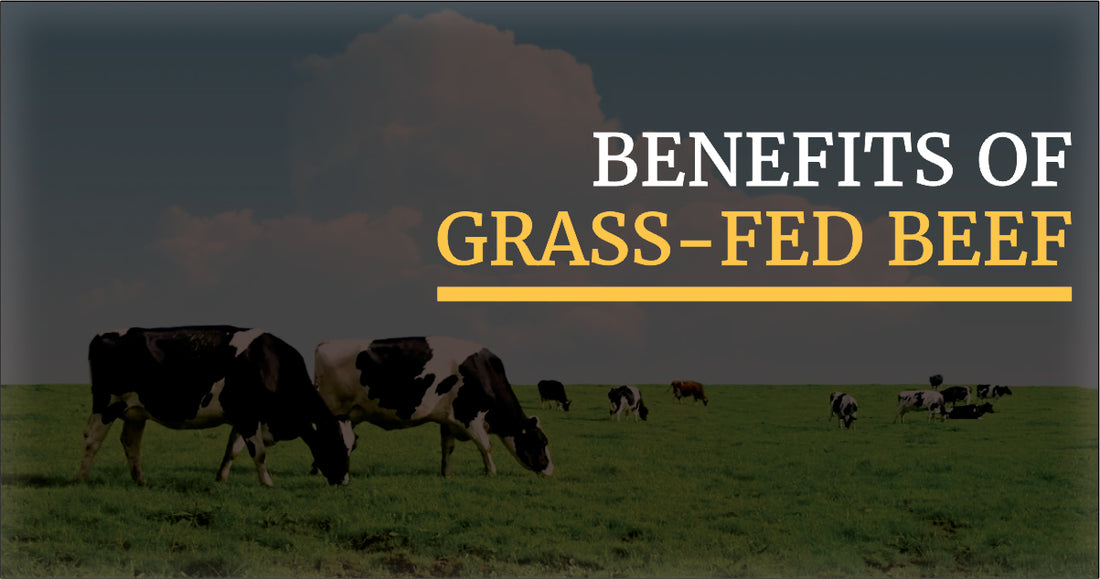
Benefits of Grass-Fed Beef.
Carolina Cattle CompanyShare
Introduction
In the last couple of years, those who are health-conscious and environmentally aware have increasingly turned to beef from animals raised on pasture instead of grain-fed beef. The reasons for this preference are clear. It should be noted that grass-fed beef has several advantages, including its health benefits, nutritional value, flavour, and environmental impact. This post will look at the various benefits associated with grass-fed beef compared to grain-fed options and consider its effects on an individual’s health status, including sustainability issues and its impact on the economy.
Nutritional Advantages of Grass-Fed Beef
When it comes to nutrition, grass-fed beef is better than grain-fed beef. The meat produced by these cows is affected by their diet, which is mainly composed of pasture grasses.
Grass-Fed Beef Nutrition
Essential nutrients found in grass-fed meat promote wellness generally. Chiefly among these is the presence of increased Omega-3 fatty acid content. Omega-3 is a type of polyunsaturated fat found in fish and certain plant oils and is known for its heart-healthy qualities and anti-inflammatory properties. Compared to grain-fed cattle, grass-fed cattle possess about twice as much omega-3 in their tissues, hence making them valuable elements in well-balanced diets.
Health Benefits of Grass-Fed Beef
The health benefits of grass-fed beef extend beyond its nutritional content. Here’s a closer look at how incorporating grass-fed beef into your diet can positively impact your health:
Grass-Fed Beef and Heart Health
When we eat grass-fed beef, our blood pressure and triglyceride levels will be lowered, as will the chances of having a heart attack. This is because it contains omega-3 fats, which are helpful to the heart. Further, it helps to avoid chronic diseases since it prevents inflammation.
Antioxidants in Grass-Fed Beef
The concentration of antioxidants in grass-finished beef is also greater than that from grain. These antioxidants include Vitamin E and A, among others, which protect cells from destruction by excessive oxidative activities caused by free radicals. Prevention of this kind reduces the probability of suffering from chronic diseases and enhances overall health.
Grass-Fed vs. Grain-Fed Beef
Some distinctions arise when comparing beef from grasses to that fed on grains. Variable feeding habits, diverse production techniques, and nutritional compositions explain why the grass-fed variety is regarded as a better option.
Grass-Fed Beef Quality
Grass-fed beef is considered superior to other types. It is typically leaner and has a more robust taste with an aroma reminiscent of the animal’s natural feed. Also, grass-fed meats do not have any added drugs or chemicals, which are occasionally used in feedlot preparation of corn or grain-sized beef.
Grass-Fed Beef Taste
Most people think beef from cattle raised on pastures has a stronger flavour than feedlot cows. Feeding habits and other reasons may explain these variations in flavour. As Douglass (2009) states, those who purchase grass-fed beef recognize its unique taste as a sign of quality.
Environmental Benefits of Grass-Fed Beef
Grass-fed beef has many advantages beyond its health and dietary impacts. These benefits become more significant when viewed against the backdrop of ecological practices and sustainable agriculture.
Sustainability Grass-Fed Beef
Unlike everyday grain-fed beef, grass-fed beef production is generally considered more environmentally friendly. These creatures enhance the soil condition by consuming grass and other herbaceous plants on the farm. This helps maintain healthy soils and decreases the need for chemical fertilizers.
Animal Welfare and Grass-Fed Beef
For many consumers, animal welfare is a significant consideration when buying meat. In comparison, grass-fed beef production is generally more humane than conventional husbandry.
Animal Welfare Grass-Fed Beef
Ground beef obtained from cows fed solely on pasture generally comes from animals that are treated humanely and as naturally as possible. Such cows have large grazing areas where they move around freely, doing everything that is in their instinct, like eating grass or hanging with fellow cattle friends. This practice improves animal welfare, making it one with the ethical principles of farming.
Economic Benefits of Grass-Fed Beef
The economic benefits of grass-fed beef are significant. Compared to other meats, such as grain-finished beef, which may appear cheaper, this variety of meat has an exceptionally high price tag. Such a difference in pricing can be rationalized by noting that this form of meat is renowned for its superior quality and eco-friendliness.
In addition, grass-fed beef has noteworthy economic advantages. Although it is commonly known that the price is higher than grains or other types of beef, it is always justifiable due to its sustainability and superior quality.
Grass-Fed Beef Production
Grass-fed beef production may have long-term economic benefits. Using sustainable methods and less dependence on feed crops can help farmers save on expenses. Additionally, as the demand for grass-fed beef increases, producers might enjoy high prices and gain entry into specialized markets that only sell this type of meat.
Conclusion
There are numerous and diverse advantages of beef from grass-fed animals, from nutrition and health to environmental sustainability and improving animal welfare. This alternative is more nourishing than the one from feedlots since it contains more nutrients, antioxidants and Omega-3 fats. Furthermore, its production process enhances environmentally friendly and socially responsible agriculture methods; grass-fed meat may continue to be the most preferred choice among those who want to eat fine quality, healthy and ethically reared types of meat.
